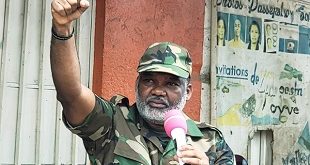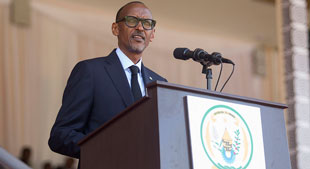More than 230,000 S.Sudanese refugees in Sudan: UN
Khartoum, Sudan | AFP |
Sudan is hosting the largest number of South Sudanese refugees, with 232,000 having entered since a civil war erupted in the neighbouring country at the end of 2013, the UN said Thursday.
South Sudan won independence from Sudan in 2011 but two years later it fell into a brutal civil war that has killed tens of thousands of civilians.
“As of the beginning of June 2016, Sudan hosts the largest number of refugees who have fled South Sudan and sought refuge in neighbouring countries,” the UN Office for the Coordination of Humanitarian Affairs, or OCHA, said in its weekly bulletin.
“According to the UN refugee agency UNHCR … there are about 232,000 South Sudanese refugees in Sudan.”
Another 230,000 have fled to Ethiopia, 202,000 to Uganda and 57,000 to Kenya, OCHA said.
Since January, 71,000 South Sudanese have arrived in Sudan, fleeing conflict and food shortages in their war-torn country, it said.
The majority of new arrivals take refuge in East Darfur, which currently hosts 66 percent of all of this year’s newcomers.
Highlighting the latest humanitarian crisis, OCHA warned that the overall donor response has been low so far.
“Inter-agency requirements for the South Sudanese situation response in Sudan amount to $141.2 million, of which only 13 percent had been received by 26 May,” it said.
South Sudan is one of the poorest countries on the planet, and it had some of the world’s worst indicators for development, health and education even before the war erupted.
The war broke out in December 2013 when President Salva Kiir accused Riek Machar of plotting a coup and sacked him as vice president.
Machar’s sacking set off a cycle of retaliatory killings that split the poverty-stricken, landlocked country along ethnic lines.
Tens of thousands of people have been killed and more than two million have been driven from their homes.
The conflict has been characterised by horrific rights abuses, including gang rapes, the wholesale burning of villages and cannibalism.
Machar returned to the capital in April as part of a peace deal which saw him reinstated as vice president, forging a unity government with Kiir.
However, fighting continues between multiple militia forces who now pay no heed to either Kiir or Machar.
 The Independent Uganda: You get the Truth we Pay the Price
The Independent Uganda: You get the Truth we Pay the Price


